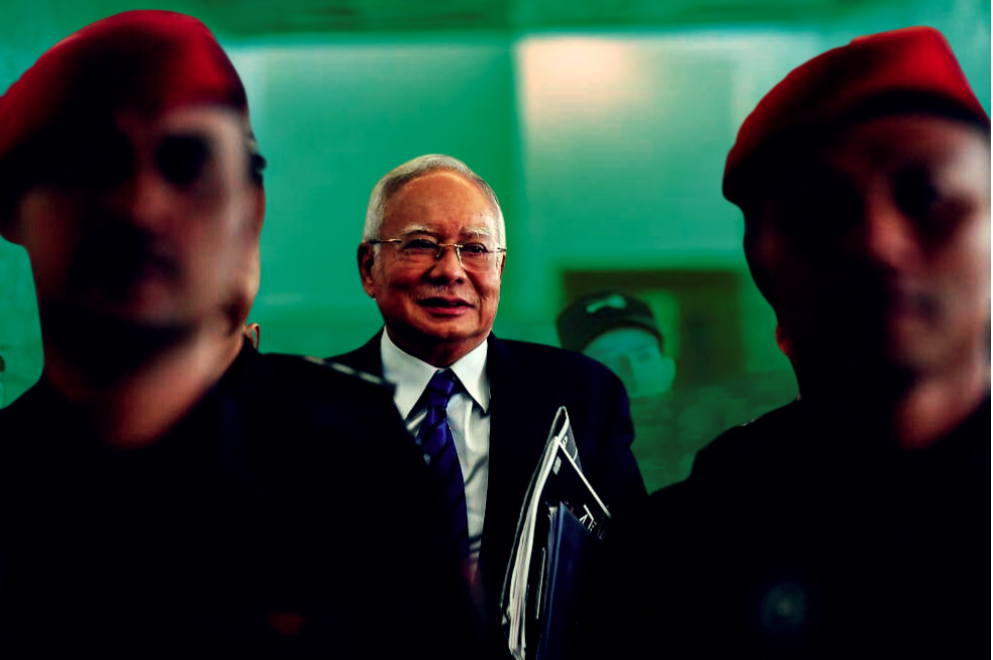Why accountability is the true test of leadership
The saga of Datuk Seri Najib Razak and the 1MDB scandal reflects the quintessential need for robust leadership, where accountability and adherence to good governance principles are paramount.

IN the arena of politics, those in leadership roles often face pressures that many can't even imagine. The tenuous balance of maintaining authority while staying approachable to constituents is demanding. Among their many crucial duties lies a fundamental responsibility: accountability. The best leaders show their true mettle not in times of triumph, but when faced with failures. When mistakes inevitably arise, exemplary leaders own up to them.
The saga of Datuk Seri Najib Razak and the 1Malaysia Development Bhd (1MDB) scandal reflects the quintessential need for robust leadership, where accountability and adherence to good governance principles are paramount. Leadership in all its forms is not merely about steering a ship towards success, but ensuring that failures and missteps do not cascade through the ranks. The former prime minister unfortunately became entangled in the scandal, and Najib learned on Oct 30 he must present his defence for accusations of abuse of power and money laundering. Preemptively, he released a statement of apology for his neglect.
Mistakes, whether small or large, are an inherent part of life including in the political landscape. From legislative missteps to errors in judgment during crises, blunders are inevitable. Nevertheless, how these mistakes are addressed by those at the helm plays a critical role in defining leadership quality. Good leaders understand that accepting responsibility is not a sign of weakness but a demonstration of integrity and strength. By acknowledging errors, leaders can take steps to rectify them, address root causes, and ultimately, gain the trust of the public.
Taking responsibility is about more than just admitting fault. It means showing a readiness to learn and improve. A leader who dismisses their mistakes as inconsequential or blames others creates an environment of distrust and inefficiency. Conversely, when leaders take ownership, they pave the way for transparency and foster a culture of accountability.
For instance, consider political figures who have voluntarily stepped down or publicly apologised in the wake of administrative failures such as South Korea’s Seung-Soo Lee, UK’s Boris Johnson, and perhaps the most popular of all, Richard Nixon’s resignation due to Watergate. These leaders understand that their accountability sets a precedent within the political realm. They ensure that public institutions remain grounded in trust and responsibility.
The erosion of trust is a significant consequence of failed governance. Trust is the bedrock upon which a just and functional society is built. When leaders act in ways that betray this trust, the damage inflicted is deep and enduring, often leading to a cynical electorate and a divided populace.
The election result in 2018 is such an outcome of depleting trust towards the Najib-led Barisan Nasional government. Restoring a leader who has failed to govern responsibly risks further corroding this essential element, establishing a dangerous precedent that failure bears no consequence.
Moreover, the reinstatement of leaders with a history of governance failures, including in managing a state investment fund, undermines the principles of merit and accountability. Positions of power should be reserved for those who have demonstrated competence and a genuine commitment to the public good. An easy path back to power for those who have previously faltered sends a message that governance is merely a game of political maneuvering rather than a vocation of service.
It is also instructive to consider the signal such actions send to aspiring leaders. A culture that tolerates or rewards past failures may engender a leadership class that is itself indifferent to the values of accountability and integrity. In nurturing future leaders, particularly in these polarised times in Malaysia, it is crucial to emphasise the rewards of responsible governance and the irreparable costs of failure.
Critics may argue that everyone deserves a second chance and that past failures could provide valuable lessons for future leadership roles. However, the stakes of governance are too high and the repercussions too dire to allow room for repeated mistakes especially when millions of Malaysians, including future generations, will bear the burden of paying for such mistakes. Lessons can certainly be learned without placing the very fabric of a nation at risk.
Ultimately, the decision to grant or withhold power should be made with an eye towards a leader's ability to learn, adapt, and serve the greater good. Such qualities are not only markers of a good leader but are also essential to maintaining the public's trust. A refusal to grant power to those with a record of governance failures, especially one who has been convicted by the nation’s highest court, should never be seen as punitive but rather as a commitment to the principles of good governance and accountability.
In other words, thank you Datuk Seri, for the apology. But it doesn’t mean a red carpet should be prepared for your return.
Download Sinar Daily application.Click Here!















